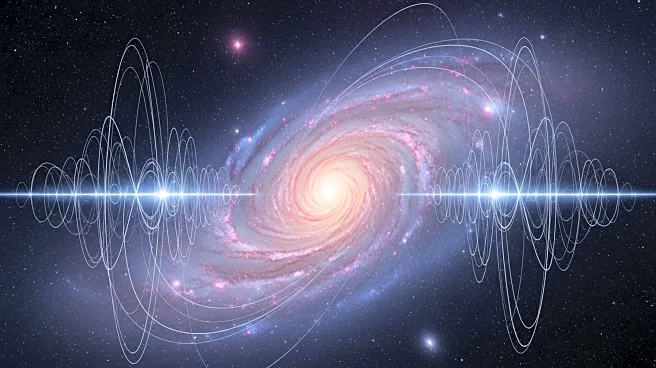What's Happening?
Researchers from Spain and Italy have introduced a new physics model that challenges the traditional inflation theory of the universe's origin. Published in Physical Review Research, the study suggests that gravitational waves, rather than rapid expansion, could account for the universe's formation. This model places gravitational waves within the framework of De Sitter space, a concept developed by Willem De Sitter and Albert Einstein. The researchers argue that gravity and quantum mechanics alone may explain the cosmos's structure, offering a simpler and potentially verifiable alternative to existing theories.
Why It's Important?
This new model could significantly impact our understanding of cosmology and the universe's origins. By challenging the inflation theory, which has been a cornerstone of astrophysics, the study opens up new avenues for research and debate. If gravitational waves are indeed central to the universe's formation, it could lead to advancements in detecting these waves and understanding their role in cosmic events. This shift in perspective may influence future scientific inquiries and educational approaches in physics and astronomy.
What's Next?
The study's authors suggest further research to test the validity of their model, potentially leading to new experiments and observations. As the scientific community evaluates this theory, it may prompt revisions in textbooks and educational materials. Researchers might focus on developing more sensitive instruments to detect gravitational waves, enhancing our ability to study cosmic phenomena. The debate over the universe's origins is likely to continue, with this model serving as a catalyst for new discussions and discoveries.
Beyond the Headlines
The proposal to use gravitational waves as a foundational element in cosmology raises ethical and philosophical questions about our understanding of the universe. It challenges long-held beliefs and encourages a reevaluation of scientific assumptions. This shift could influence cultural perceptions of science and the universe, fostering a deeper appreciation for the complexity and interconnectedness of cosmic phenomena.









